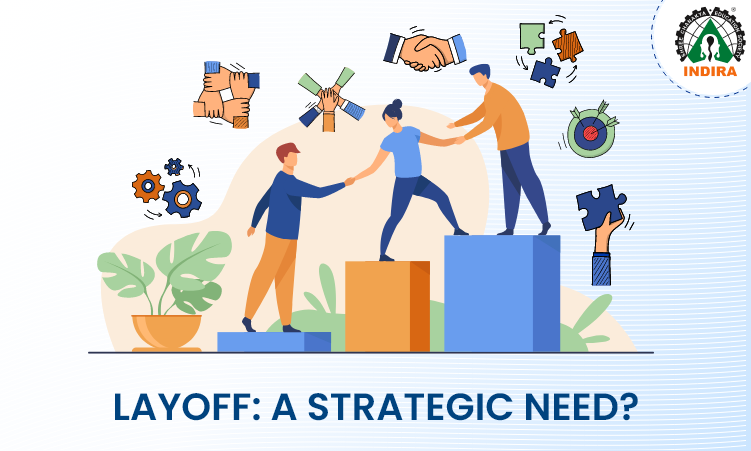Dear readers,
I am Aparna Ekande, an alumna of Indira College of Pharmacy. It gives me immense pleasure to pen down what I have learned so far through my academics and professional experience. I graduated from Indira College of Pharmacy in 2016. I started studying Pharmacy with absolutely no knowledge of how vast this field is. There are four roads a student usually chooses from after graduating with a degree in Pharmacy. Some open their medical shops, some start working in pharma companies, some start studying M. Pharm/ PharmD either in India or in abroad and some pursue MBA either in India or in abroad. To learn more about the healthcare industry and its management, I chose the option of pursuing management and I graduated from Welingkar Institute of Management, Mumbai with post graduate diploma in management (PGDM) – Healthcare. My course content, class projects, summer internship project, and live industry project groomed me for the industry. Due to the technical background in Pharmacy and management degree in healthcare I could navigate the field of consulting. I worked for three years in the life sciences domain consulting group of Infosys Ltd, Pune as a Senior Associate Consultant. Currently, I am pursuing MS in Health Informatics at Indiana University Purdue University Indianapolis, USA.
The reason I wrote about my journey so far is to create awareness about how one can navigate the field of pharma. I think the key to sustain in today’s rapidly evolving world is to keep up with the industry. When I started studying Pharmacy, I did not know that there is this huge aspect of the industry which deals with creating data-driven solutions. When we talk about the pharma industry, it is important to look at it as a part of the healthcare industry. The healthcare industry is vast. The pharmaceutical, hospital, medical devices, insurance, and public health industries come under the umbrella of the healthcare industry. All these subindustries function individually but are still interconnected and aim to serve the patient. Due to increased accessibility to internet, the use of technology has also increased. Today everything is just a click away! Owing to the huge number of regulations as compared to other industries, the healthcare industry has never been an early adopter of any technology. Having said that, the healthcare industry has come a long way and now focuses on creating data driven, patient centric solutions. The pharmaceutical industry itself is a data intensive industry as everything needs to be documented. When we talk about data in the pharma industry, we need to look at this topic from various angles. Let us start with new drug development. As we all know, it takes several years for a drug to come into the market. Immense amount of data is generated at various phases of the drug development. Rapid creation of vaccines for COVID-19 was possible due to the already available data of several potential candidates. Analysis of biomedical data helps in identifying effective treatments, identifying potential drug candidates, studying long term effects of diseases and drugs, etc. Today, the pharma industry is not just about selling medicines. Pharma companies are trying to look at holistic wellness of patients and are thus trying to engage them in several ways. Many pharma companies are collaborating with medical device companies and are engaging patients in innovative ways like through mobile applications. For example, some companies have developed inhouse mobile applications or applications through such collaborations which enable monitoring of patient’s compliance to medications, patient’s diet, and overall lifestyle. When such data is recorded for a patient in a mobile application, it is called as a personal health record (PHRs). In developed countries, patient records are managed through electronic health records (EHRs). There have been efforts in the industry to integrate PHRs and EHRs and this integration not only helps clinicians in effective decision making but also helps to aggregate data which when analyzed using machine learning models can help in identifying personalized treatments, identifying risk factors, identifying vulnerable populations, predicting mortality/health outcomes related to a particular disease, etc. Apart from this structured data, a lot of unstructured data hidden in the electronic health records, particularly in clinical notes can be analyzed using natural language processing to identify patterns of a disease in a population, patient’s response to a particular medicine, etc. Apart from this, collection of genetic data is also increasing rapidly. Analysis of such data and its integration with one’s EHR can help in creating personalized medicines. Apart from the research aspect, the pharma industry also deals with huge amount of market specific data. Analysis of such data helps companies come up with data driven solutions and target markets accordingly to enhance their sales. Also, since mostly pharma companies have numerous SKUs, they have to track these SKUs throughout their lifecycle and monitor their approval status in various countries. Thus, pharma companies engage in using ETL tools to aggregate this data from various sources and transform them as per internal company needs to create reports for taking business decisions. This is also one of the aspects of data handling in the pharma industry. The pharma industry is also adopting technology in manufacturing by creating smart factories. Such factories create huge amount of data points which enable maintaining of audit trail and help in taking real time operational decisions. The blockchain technology is being explored currently to give more control and visibility to patients regarding how their data is being used in clinical research. Thus, technology and data analysis are becoming integral part of the pharma industry and the current workforce needs to keep up with these changes!
Blog By:
Ms. Aparna Ekande
ICPian Alumni
Posted in:Education






